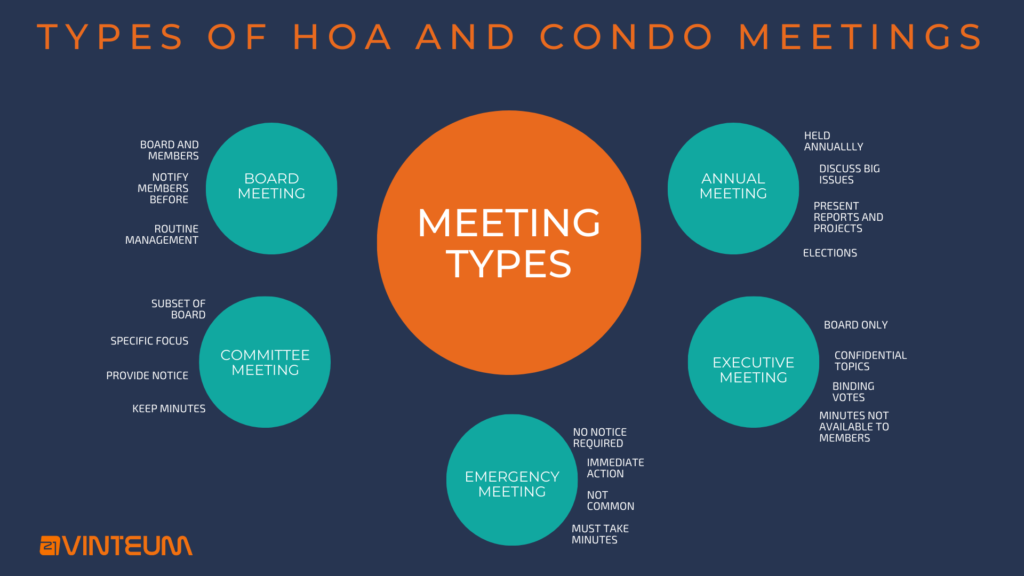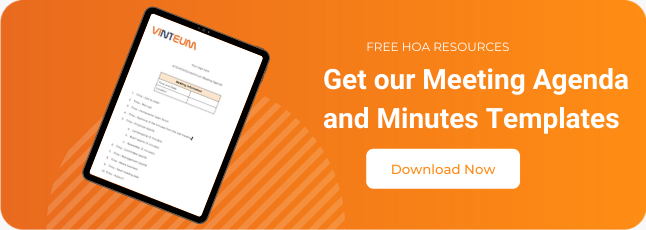
You might live in an HOA and you aren’t really sure what the HOA Secretary duties are. Or, you have just joined the board and would like to understand this role better.
Whatever the reason that brings you here, this blog post will provide you with all the information you need.
An HOA Secretary plays a crucial role in the administration of the community. So, it is important to acknowledge their responsibilities and learn new ways to make processes easier, quicker, and more compliant.
Read on to discover these simple yet effective tips.
What’s an HOA Secretary?
An HOA secretary takes care of the administrative aspect of managing an HOA. Their responsibility is to keep and organize records, fill out forms, update the HOA membership list, prepare the agenda for HOA meetings and take minutes.
Board Member Roles & Elections
Homeowners in a community elect new board members regularly. Usually, every year. Each one of the board members has a specific role. Even if it can vary from one association to another the most common roles are:
- HOA president
- HOA vice-president
- HOA treasurer
- HOA Secretary
Some HOAs also have committees. Those are groups of board members who are in charge of specific aspects of the community.
Here are some examples:
- Landscaping committee
- Tech committee
- Farm committee
- Maintenance committee
- Events committee
The 5 key HOA secretary duties and best practices
1. Storing records
The main duty of an HOA secretary is to be the association’s recordkeeper. This means you need to organize all types of documents properly. This can seem like a straightforward task. However, this is often the main issue in homeowners associations (HOAs). When no proper processes are in place, organizing and tidying records can quickly become a nightmare.
As an HOA secretary, your responsibility is to make sure that there is an efficient process in place. One that future HOA secretaries can replicate easily. An easy-to-use procedure helps board members transition without too much hassle and confusion.
Problems start to arise when homeowners can’t simply locate files and important information.
Best practice: HOA document management system
Storing your HOA documents online is the ideal way to ensure all your copies are safe and easy to access.
If you haven’t done so already, now is the time to start scanning your old records and classifying them electronically and physically.
This is the perfect opportunity to establish how you want to sort your files. For example: by date, name, importance, topic, or even by project.
2. Filling out forms, handling signatures and contracts
The HOA board of directors sometimes needs to fill in government forms such as taxes declarations, for example. This is one of the many HOA secretary duties. Board members, especially the HOA president often sign documents and contracts. As an HOA secretary, you may also be asked to act as a witness when these signatures happen. You may also need to co-sign sometimes.
Best practice: Put a process in place to track forms and contracts
With so many forms and contracts to supervise you can easily get overwhelmed and miss a deadline or even worse lose a document. The best way to remediate it is by tracking properly every form you need to fill and every document that requires a signature. You can easily do so by creating an excel spreadsheet where you add the following:
- Name of the file
- Location
- Deadline
- Status (pending, filled, signed, sent)
3. Managing the HOA membership list
An HOA secretary is in charge of maintaining and updating the HOA membership list. This is especially important in a self-managed HOA, where you don’t have a manager to help. This means you have access to homeowners’ private information such as home address, phone number, or even email addresses. You must keep this list safe from outsiders as it contains confidential information. You should also check your governing documents and state laws. Some HOA allows members to have access to the membership list while others don’t.
Beyond keeping it safe, your role is also to keep it up-to-date. For that to happen, you need to remind residents to inform you of any potential change in their data.
Best practice: Be compliant and use safe technologies
Protecting resident privacy starts with compliance. Always align data practices with your governing documents and state laws, and consult legal experts to avoid risks. Secure, encrypted technologies are non-negotiable for handling sensitive information.
Implement a self-service resident directory to streamline updates. Homeowners can log in to edit their details, ensuring accuracy and cutting manual work for boards. Role-based access and audit trails add security while simplifying communication for emergencies or rule reminders.
Neigbrs by Vinteum offers a compliant solution: data storage, residents and administrators portals, and secure communication tools. Automate updates, track changes, and ensure privacy while keeping your HOA efficient and trustworthy.

4. Keeping residents informed
As you may know, an HOA is run democratically. This means that all members have the right to vote. To participate in important decisions, residents must be informed about what is happening in their community. The role of an HOA secretary is to make sure that all residents are aware of :
- Rules and regulations
- HOA meetings
- Upcoming events
- Safety information (example: natural disasters preparedness)
- Any relevant change in the HOA
Unfortunately, communication is still a big issue in community associations. According to a recent survey we conducted, 90% of respondents agreed to have communication issues in their communities.
Best practice: Send regular HOA newsletters
An HOA newsletter is the best tool to inform residents. It is also a great way to foster engagement between homeowners. Some residents may find them boring or outdated. Especially, the younger generation. However, there are many ways you can create an informative and creative HOA newsletter.
Another way to guarantee all residents are up to date is to send messages through several HOA communication tools. Let’s say you need to inform everyone about maintenance activities happening next week. You can send the same message by email, text message, and smart call.
5. Prepare HOA Meetings
Another HOA secretary’s duty is to prepare HOA meetings. Homeowners in community associations gather several times during the year to discuss topics such as maintenance, HOA fees, and violations.

As an HOA secretary, your role is to notify residents so they are aware of the meetings’ dates and location. You also have to prepare the agenda and send it to the whole community. That way, everyone is aware of the topics that the board and residents will address.
During the meeting, it is your responsibility to write the minutes. After the meetings, you need to sign the document to make them valid. Then, you can send it to all members so everyone has a record of what was said at the meeting.
Best Practice: Check your governing documents and use meeting templates
The responsibility of an HOA secretary regarding HOA meetings can vary from one association to another. This is why it is important to check state laws and follow your governing documents. By applying the rules cited in your governing documents, you will make sure that you are doing it the right way.
Another great way to simplify the process is to use a document template for the minutes and agenda. This way you don’t have to create it from scratch each time there is a new meeting. This will save you time but will also make your communication more consistent.

Final points
As you could see, there are many ways to make HOA secretary duties less complicated. By applying small changes to your daily processes you can make any task easier to tackle.
Click on the image below and learn how to use different HOA communication tools to keep residents informed at all times.




